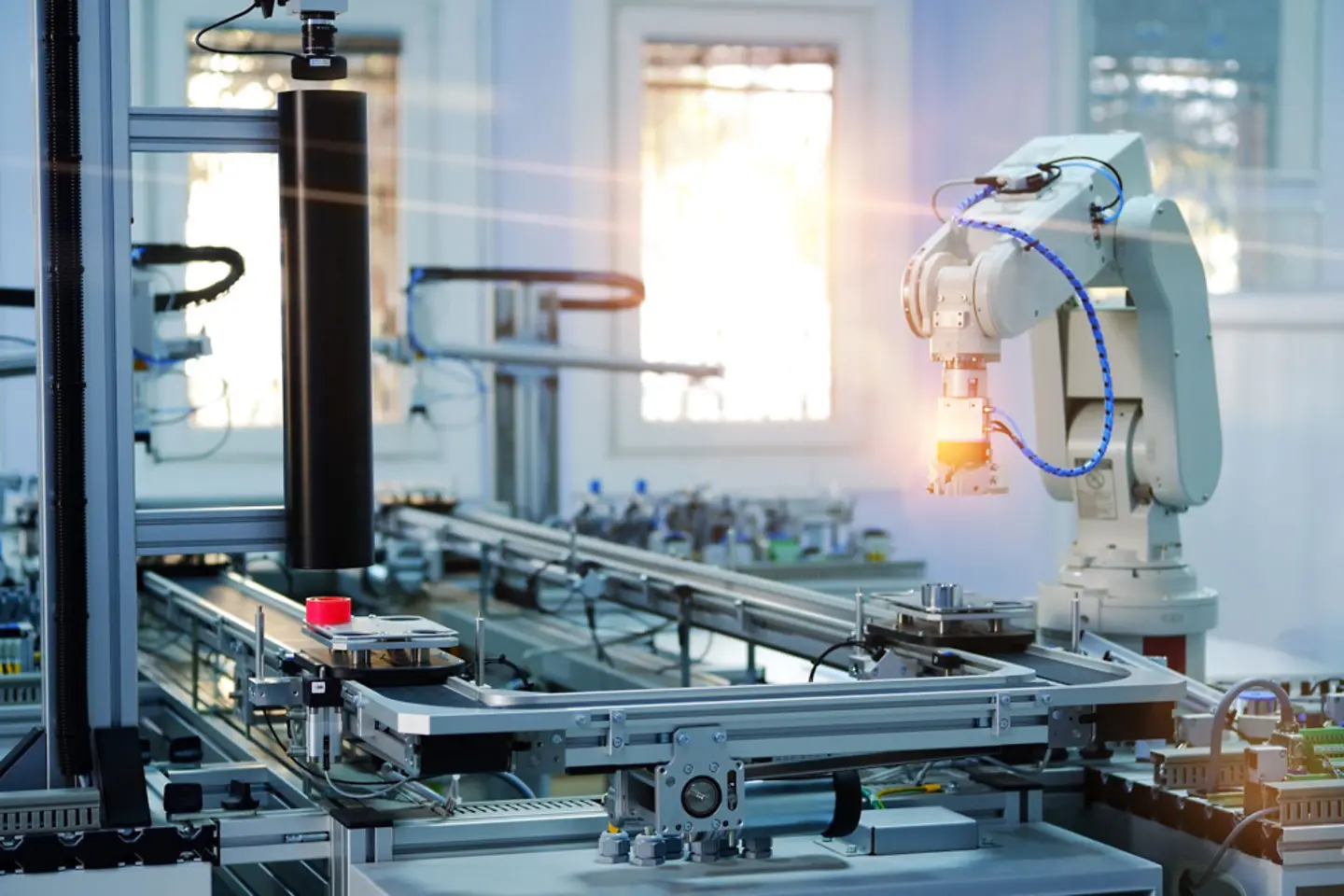
Manufacturing has always been an industry with tight deadlines to meet and sharp margins to maintain. Manufacturers must embrace digitalisation to remain competitive amid dynamic demand fluctuations, geopolitical risks and higher cost pressures.
In the 2023 State of Smart Manufacturing Report, over 45% of Asia-Pacific (APAC) manufacturers are struggling to outpace competitors. The biggest challenges they face include a lack of innovation, a skilled workforce and technology.
As inflation continues to run hot in 2023, manufacturers in Asia are facing an uphill task. The challenge to enhance output while managing costs as profit margins are getting squeezed has never been more pronounced.
China, which is colloquially called ‘the world’s factory’, has seen profits for manufacturers down 13.4% in the first 11 months of 2022, thanks to the fallout from the pandemic. To combat this, manufacturers are starting to embrace the Industrial Internet of Things (IIoT) in order to maximise value creation and stay competitive.
China’s Great Wall Motor, a car manufacturer, opened its second full-production smart factory in Thailand. Utilising intelligent data systems and big data technology, they have integrated IIoT into the core of their factory management processes. This allows the company to reach a production capacity of 80,000 units per annum.
IIoT provides factories with the capabilities to rapidly scale up innovation and production without compromising on quality standards while retaining cost efficiency. This is especially helpful when it comes to automating manufacturing processes.

IIoT helps to unlock the power of automation in factories. It allows manufacturers to deploy robotics and automation, allowing production lines and processes to operate seamlessly without the need for constant human oversight. With the capability to continuously capture and analyse real-time data streams, IIoT enables factories to make on-the-fly decisions effectively.
Foxconn’s Chengdu manufacturing campus is one example of how IIoT is used to achieve profitable growth by harnessing the potential of automation. Labour efficiency increased by 200% while overall equipment effectiveness improved by 17%. The campus today is recognised by the World Economic Forum's Global Lighthouse Network as a Lighthouse Factory.
IIoT also allows for better human-machine interaction (HMI) using the advantages of automation. Chatbots and collaborative robots help factory workers and supervisors quickly assess data and gather insights for faster decision-making.
While it is crucial to improve production value, the true strength of IIoT lies in its ability to create a robust and adaptable supply chain. This can be done through the use of digital twins. By creating virtual replicas of physical assets and processes, digital twins allow manufacturers to gain real-time insights into their supply chain operations. All without disrupting actual production schedules.
The market for digital twins is expected to grow at a CAGR of 45.9% to US$ 137 billion by 2030, of which Asia Pacific is the third largest contributor. Manufacturers can simulate various scenarios and conduct "what-if" analyses to make data-driven decisions that enhance supply chain resilience, optimize inventory levels, and streamline production schedules.
Shell, for example, launched their Digital Twin technology to digitise their manufacturing site and refining complex at Pulau Bukom Singapore. This was done to help troubleshoot issues more effectively, reduce maintenance costs and to boost operational efficiency. Shell a full roll-out to result in 25% improvements in productivity, reliability and safety.
By harnessing digital twins, manufacturers will be able to integrate different stages of the manufacturing process, suppliers and logistic partners together for better communication. This can be further enhanced through IIoT which can harness real-time data to enable more proactive maintenance and reduce downtimes.

While enhancing production value is important, IIoT shines when it comes to building a robust and resilient supply chain. The technology grants real-time visibility across the value chain to manufacturers. From warehouse inventory to the movements of connected fleets and autonomous vehicles, IIoT allows greater optimisation opportunities for the supply chain.
Nippon Express, one of the world’s biggest shipping companies, relies on IoT to enhance their quality control and distribution hubs. IoT allowed the company to enhance their pharmaceutical global logistics services, ensuring safe and secure transportation. Medicine and drugs can be highly temperature sensitive. Using sensors and the power of IoT, the company is able to track each pharmaceutical shipment tracking both the location of parcels and their temperature to ensure the integrity of the products.
Inventory mismanagement is a pressing issue globally and is causing over US$163 billion of wasted inventory annually. This means products are regularly discarded due to export or overproduction. By harnessing IIoT, manufacturers will be able to better forecast ahead to react towards any sudden changes both locally and globally.
Downtimes are one of the greatest challenges to manufacturers. These interruptions not only decrease production output, leading to revenue losses, but they can also cause disruptions throughout the entire supply chain.
In 2022, Asia-Pacific manufacturers topped the list of industries that were attacked by cybersecurity threats. They were an attractive target specifically due to an extremely low tolerance for downtime.
By integrating IIoT systems with robust cybersecurity measures, manufacturers can create a secure and interconnected ecosystem that proactively identifies and mitigates potential cyber threats. This helps to reduce the risk of downtime caused by malicious intrusions, ensuring continuous and uninterrupted operations.
In addition to integrating with cyber security solutions, IIoT can augment its effectiveness as well. IIoT facilitates rapid incident response and recovery. When an issue is identified, IIoT can automatically trigger alerts, allowing the cybersecurity team to take immediate action and contain the threat before it disrupts production. This proactive approach to cybersecurity not only minimizes downtime but also safeguards sensitive data and intellectual property of manufacturers.
T-Systems offers expertise in seamlessly integrating IIoT with cyber security solutions, safeguarding your manufacturing processes against potential downtime risks.

Downtimes are one of the greatest banes to manufacturers. Not only does it reduce output, thus impacting revenues, but it can also clog up supply chains.
According to McKinsey, by unlocking the potential of Industry 4.0 through IIoT, manufacturers can enjoy up to 50% reductions in machine downtime. Through the implementation of sensors, manufacturers can start to capture and analyse machine data in real-time. Factory supervisors will gain complete visibility of the machinery to observe normal and abnormal states to pre-empt potential disruptions. This predictive maintenance capability allows factories to avoid costly malfunctions, missed delivery times and poor product quality.
At T-Systems, we offer a multi-IoT service platform that bundles the best platform providers, allowing you to enjoy multi-spectrum advantages from just a single source. We help set your factory up for digital success starting from consultations to launching a proof of concept before helping with a full roll-out of your smart factory.
As we move towards a future of elevated costs and increasing competition, manufacturers that embrace IIoT will stay ahead of the game. Smart factories will be able to harness the true potential of their data, use automation to unlock manufacturing efficiency while optimising their supply chains to stay on top of global changes.
Want to learn more about how T-Systems can help you optimise your supply chain and stay ahead of global trends? Speak with us today to begin your transformation with IIoT.